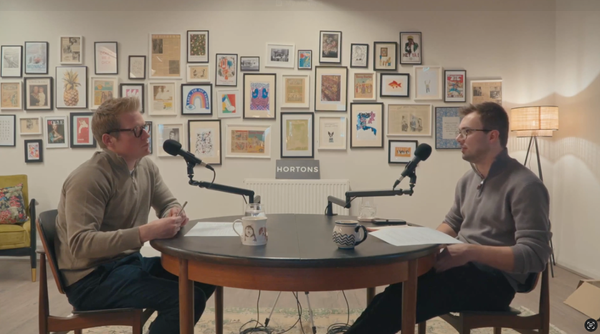The Housing Crisis Unpacked: 7 key themes from the podcast series

As you may know, all three episodes of our podcast mini-series on the housing crisis are now live and available on Spotify, YouTube, and Apple Podcasts.
In this week’s newsletter, I wanted to share five quick insights from the series. Of course, the housing crisis is an enormous issue, and our discussions have only scratched the surface. So, it's best to consider this article a starting point - a selection of thoughts to help you better understand the bigger picture and deepen your expertise in the housing market.
1. The Planning System
The planning system is often cited as one of the main factors slowing down the delivery of new homes. Both Labour and the Conservatives have advocated increasing capacity in local authority planning departments to speed up the process. However, from my conversations and research, this seems to be a view most commonly expressed by politicians, councillors or those working in that aspect of the property industry.
There is a common belief that reforming the planning process could be the key to solving the crisis. It will no doubt be beneficial to have a more efficient planning system, however, people need houses built - not just the permission to build houses.
2. Who’s Going to Build the Houses?
About 75% of new homes are built by the top 10 house builders. This means that, no matter how much the planning system improves or how high a government target is set, we are still reliant on these companies to build the majority of new homes. However, these companies are publicly listed and will always optimise their output for profit, acting in their shareholders’ interests (as they should!)
To further illustrate this point - if they wanted to build more houses, they would already be doing so. They are all sitting on enormous landbanks with planning permissions already granted. In fact, they actively build those landbanks every year to increase shareholder value and retain the ability to adjust their output in response to market conditions.
3. The Private Rented Sector Will Continue to Get Harder for Tenants
Successive governments have introduced legislative and tax changes that favour tenants over landlords. While these policies may seem beneficial on the surface, they have contributed to rising rents and reduced supply. Some estimates suggest that around 2,000 landlords are leaving the sector every month.
The upcoming Renters Reform Bill is another step in this direction and will exacerbate existing issues. Large, institutional landlords with thousands of properties will be able to absorb the increased legislation and costs. However, the majority of privately owned rental stock belongs to landlords with just one or two properties. Increasing taxation and the regulatory burden disproportionately affect these landlords, making it more difficult for them to operate. As a result, many are choosing to invest elsewhere, further restricting the number of homes available to tenants - driving up rental prices.
4. A Lack of Long-Term Strategy in Policy Making
A lack of long-term strategic planning in housing policy has been a major contributor to the crisis we find ourselves in today. While I’ll discuss potential solutions in a moment, one thing is clear - there is no quick fix. Unfortunately, our political system rewards short-term wins over long-term strategy.
This is evident in the way housing ministers have changed over the past 20 years - none of them have lasted more than two years in the role, and despite it being obvious that more fundament changes are needed, no radical long term strategies have been proposed.
5. A Potential Solution
If we can’t rely on the top 10 housebuilders to fill the gap, another mechanism must be found to deliver the homes we need.
One idea, suggested by Russell Quirk - a guest on the podcast - is the creation of a National Housebuilding Corporation. This would be a business led by experienced private-sector professionals (people with backgrounds in housebuilding) but accountable to the government, with the sole purpose of delivering new homes.
Quirk suggests using publicly owned land, as councils are sitting on huge swathes of underutilised land. The corporation could build homes for profit, reinvesting the proceeds into future projects while also creating competition for the major housebuilders.
6. Small Builders Are Underrepresented
Throughout the 1950s, around 3.5 million homes were built. Half of them were council houses, but the other half were built by small, often local, building companies. The national conglomerates we see today didn’t exist back then.
There is huge potential for smaller builders to step up and deliver a much higher volume of homes. However, they are largely absent from the national conversation. Unlike the big housebuilders sitting on massive landbanks, smaller builders have a real appetite for new projects. They can also take on opportunities that big developers overlook, such as brownfield sites and conversions.
Most large housebuilders prefer large, straightforward sites. Smaller developers, on the other hand, are more willing to tackle complex projects. By unlocking these opportunities and ensuring access to competitive financing, small builders could play a major role in increasing housing supply.
7. The Housing Crisis Is an Affordability Crisis
At its core, the housing crisis is an affordability crisis. By failing to build enough homes, we restrict supply and push prices up. While most people can find homes to buy, the high prices make it increasingly difficult to get on the property ladder.
Unless the root issue is addressed - by building more homes - we will remain stuck in this cycle. Reforming the planning system or setting higher housebuilding targets alone won’t solve the problem. What’s needed is fundamental change - supporting smaller builders and creating a government-backed corporation like Russell Quirk’s proposal to directly increase supply.
I hope you found the mini-series interesting. I'm planning the next series now, which should be released in April.
If you've not listened yet, check out the first series here.
And for more estate agency related podcasts, you can listen to The Agent's Journal articles too - just search wherever you get your podcasts!
Speak soon
Adam




